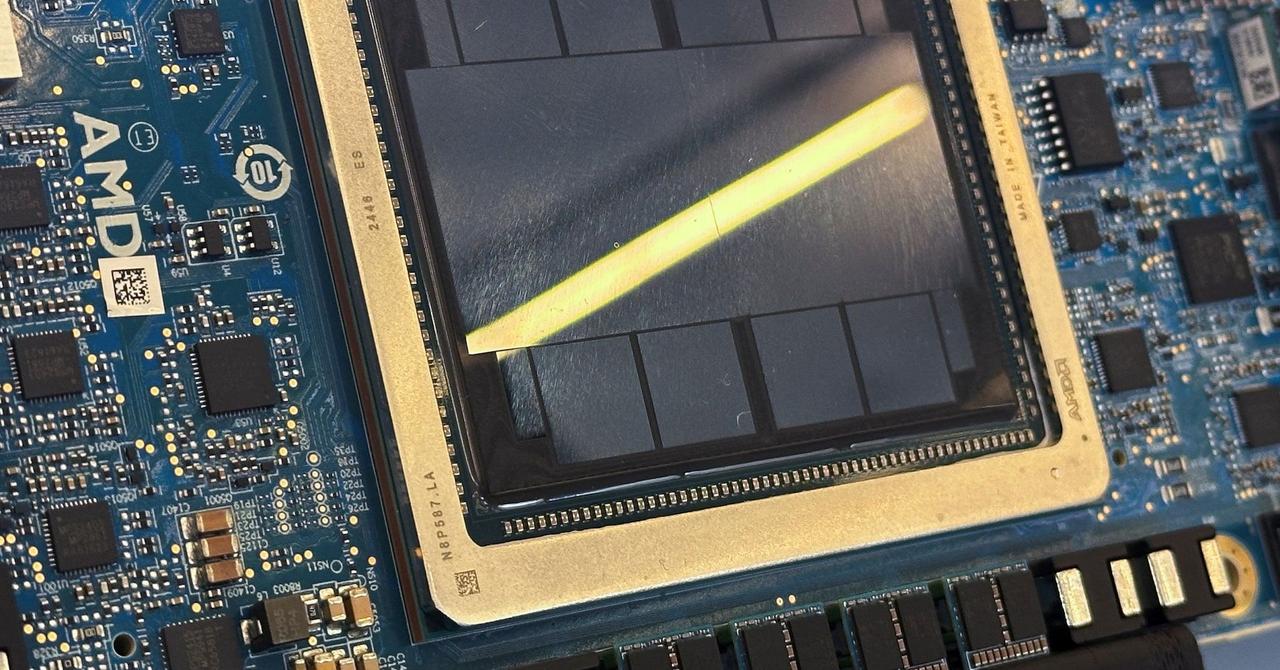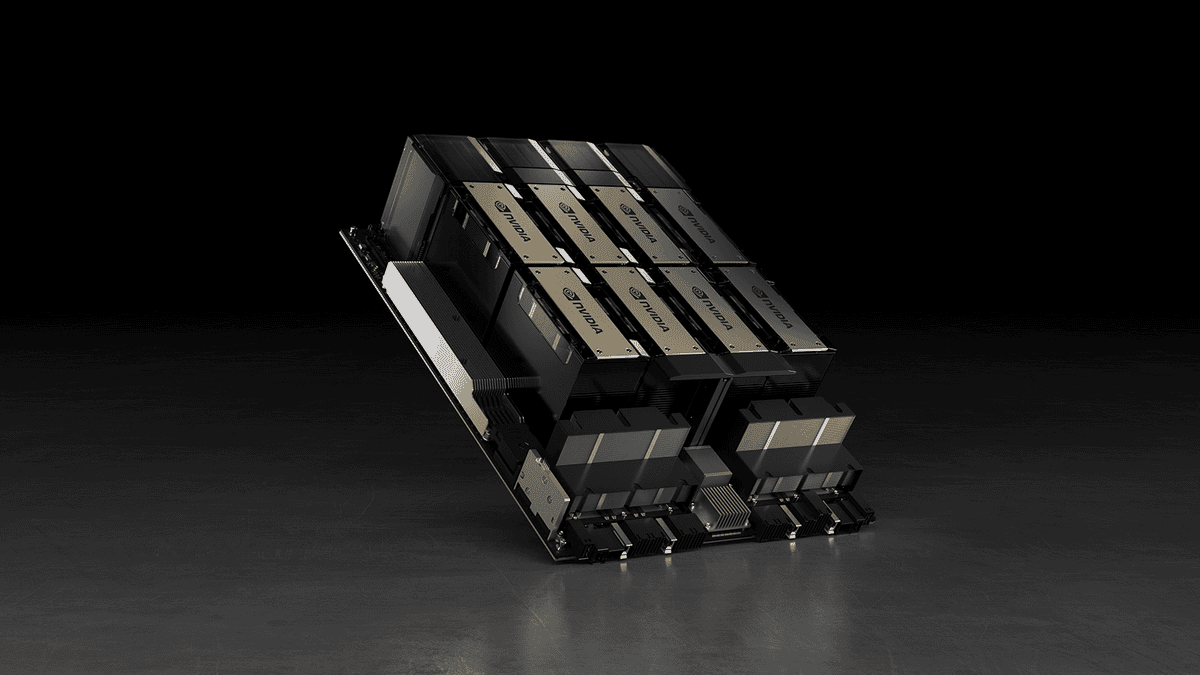Malaysia Implements Trade Permits for U.S. AI Chips Amid Global Export Control Concerns
8 Sources
8 Sources
[1]
Malaysia will require trade permits for U.S. AI chips | TechCrunch
Malaysia is taking on a bigger role in helping the U.S. prevent advanced AI chips from ending up in China. The Malaysian Ministry of Investment, Trade and Industry announced new restrictions on exporting AI chips of U.S. origin out of its country on Monday. Individuals and companies are now required to notify Malaysian authorities at least 30 days in advance when they are exporting or transshipping U.S. AI chips, effective immediately. "Malaysia stands firm against any attempt to circumvent export controls or engage in illicit trade activities by any individual or company, who will face strict legal action if found violating the STA 2010 or related laws," the Ministry wrote in a press release. Alleged chip smuggling of U.S. AI chips into China has come up multiple times in recent months. Anthropic claimed that China already had sophisticated chip-smuggling networks set up in a blog post in April. The post also claimed that smugglers were going to extreme lengths to bring AI chips into China, including using prosthetic baby bumps filled with chips, and that smugglers were shipping GPUs alongside live lobsters. Anthropic's April blog post was written in favor of the U.S. imposing more AI chip export rules to prevent this type of smuggling. Those restrictions are likely arriving in the near future. Last week, Bloomberg reported that the Trump administration was planning to further restrict the export of AI chips, from companies like Nvidia, to Malaysia and Thailand, to prevent China from accessing these AI chips through a different mode of entry. The Trump administration has not made an official announcement regarding this yet. The U.S. Department of Commerce is also working on its own set of general U.S. AI chip export restrictions after formally rescinding the Biden administration's AI Diffusion rules in May.
[2]
Malaysia closes back door China could use to buy AI chips
Will this win Washington's approval and perhaps see tariffs ease? The government of Malaysia on Monday closed a back door that may have allowed the export of AI chips to China. The nation's Ministry of Investment, Trade, and Industry on Monday made an announcement [PDF] that it now requires exporters of "high performance AI chips of US origin" to obtain a strategic trade permit before shipping the semiconductors to China. Malaysia issues such permits under its Strategic Trade Act of 2010, which applies to nuclear material, goods related to aerospace, and to electronics including computers and goods related to telecommunications and information security. The act allows for one-off permits, bulk permits, multiple-use permits and special permits. The latter are one-off permits issued for exports to restricted destinations. Malaysia will require exporters of advanced AI chips to acquire permit 30 days before shipping. Malaysia's sudden interest in strong regulation of semiconductor exports may be due to early July rumours that the USA was set to restrict exports to the Asian nation to stop trans-shipments to China. US policy prohibits export of advanced semiconductors to China, and Washington feared Malaysia had become a back door. The Malaysian Ministry's announcement states that the nation won't tolerate export shenanigans and will use full force of local law to ensure "all entities operating in the country are expected to comply with relevant international obligations that are applicable to their operations to avoid any secondary sanctions on their businesses." "Malaysia stands firm against any attempt to circumvent export controls or engage in illicit trade activities by any individual or company, who will face strict legal action if found violating the laws," the Ministry wrote. The announcement will likely please Washington, which recently frowned upon Malaysia's plan to build a sovereign AI capability built on Huawei GPUs and last week imposed a 25 percent tariff on imports from the Asian nation. Whether tightening export restrictions helps Malaysia to secure a lower rate of tariffs remains to be seen. Another related issue to watch is whether Singapore makes a similar announcement, as entities based in the tiny island nation sometimes account for over 20 percent of Nvidia's revenue. Singapore is home to a vigorous datacenter sector, but it's nowhere near big enough to use huge quantities of Nvidia gear, arousing suspicions that the nation is used to trans-ship accelerators to other destinations. ®
[3]
Malaysia to Require Permits on Trade of High-End US AI Chips
Malaysia will require permits for exports and transshipments of high-performance US artificial intelligence chips, suggesting the government is seeking to clamp down on the diversion of the sensitive components to places like China. The license requires any individual or firm to notify authorities at least 30 days prior to exporting, transhipping or bringing in transit goods, if the individual or company knows or have reasonable grounds to suspect the item will be misused, or used for a restricted activity, the Ministry of Investment, Trade and Industry said in a statement on Monday. The policy is effective immediately.
[4]
Malaysia says trade permit required for AI chips of U.S. origin
KUALA LUMPUR, July 14 (Reuters) - Malaysia's trade ministry said on Monday that the export, transshipment and transit of high-performance artificial intelligence chips of U.S. origin will be subject to a trade permit, effective immediately. Individuals or companies are required to notify authorities at least 30 days in advance when exporting, transhipping, or bringing in transit any item that is not expressly listed on Malaysia's strategic items list, the ministry said in a statement. The move serves to close regulatory gaps while Malaysia reviews the inclusion of high-performance AI chips of U.S. origin in its list of strategic items, the ministry added. "Malaysia stands firm against any attempt to circumvent export controls or engage in illicit trade activities by any individual or company, who will face strict legal action if found violating the laws." The southeast Asian country has been working to tighten regulations on semiconductors as it comes under pressure from the United States to staunch the flow to China of chips crucial to the development of AI, the Financial Times reported in March. Malaysia was also if local laws were breached in the shipment of servers linked to a Singapore fraud case, as they may have contained advanced chips subject to U.S. export controls. Reporting by Danial Azhar; Editing by David Stanway Our Standards: The Thomson Reuters Trust Principles., opens new tab
[5]
Malaysia controls AI chip exports as US targets China smuggling
Companies must notify Kuala Lumpur 30 days before exporting, especially if misuse is suspected. Malaysia will now require permits for exports of high-performance US artificial intelligence chips, suggesting the government is seeking to clamp down on potential diversion of the sensitive components to places like China. Effective immediately, individuals and companies must notify Kuala Lumpur at least 30 days prior to exporting or shipping such hardware, Malaysia's trade and industry ministry said Monday. They must inform the agency if they know or "have reasonable grounds" to suspect the items will be misused or used for restricted activities. Malaysia "will not tolerate the misuse of Malaysia's jurisdiction for illicit trading activities," the ministry said. Kuala Lumpur has come under increasing pressure from Washington -- which has effectively banned the sale of advanced AI chips to China since 2022 -- to halt the suspected flow of those parts to China via intermediaries in Malaysia. Malaysian authorities said in March that they would tighten regulations on the country's burgeoning data center industry, which relies on chips from the likes of Nvidia Corp. The new permit requirements aim to "close regulatory gaps," according to the ministry's statement, while Malaysia "undertakes further review" of the potential inclusion of AI chips to a national list of items covered by the Strategic Trade Act. The ministry did not immediately respond to questions about whether the controls came at Washington's urging. Semiconductor sales to Malaysia also are a focal point of a court case in neighboring Singapore, where prosecutors charged three men with defrauding customers about the ultimate destination of AI servers -- originally shipped from the island nation to Malaysia -- that may have contained advanced Nvidia chips. Malaysia said in March that its investigation into the matter hadn't uncovered evidence of such shipments, and that the country will continue to monitor for possible fraud. Nvidia has not been accused of any wrongdoing in Singapore's investigation. Malaysia is a key part of the AI supply chain, home to many facilities used for developing and deploying AI models. American companies including Oracle Corp. are massively expanding their data center footprints in the country, which saw an increase in imports of crucial components this year -- particularly in April, the month before the US was expected to start requiring licenses to ship AI chips to Malaysia and many other countries. President Donald Trump's administration decided not to move forward with that policy in May, though officials have since drafted a separate regulation that would mandate such approvals for AI chip shipments to Malaysia and Thailand in particular -- an effort that seeks to crack down on suspected semiconductor smuggling into China, Bloomberg has reported. That rule is not yet finalized and could still change. Nvidia Chief Executive Officer Jensen Huang has said there's "no evidence" of AI chip diversion, in general remarks that didn't touch on any particular country. In response to earlier Bloomberg queries about the potential US curbs, Malaysia's trade ministry said that it welcomes dialogue with the US and other nations to "clarify any misunderstandings," while also warning that unilateral restrictions could disrupt legitimate trade and hamper innovation.The ministry -- which, like many others in Asia, is currently hammering out a trade deal with US officials -- added that "all matters related to Malaysia-US bilateral trade are interlinked, each having its own unique role in the current trade negotiations."
[6]
Nvidia, Other US Origin AI Chips Shipments To China Will Now Require Trade Permits, Says Malaysia, Rule Violators To Face Strict Action - NVIDIA (NASDAQ:NVDA)
On Monday, Malaysia's Ministry of Investment, Trade and Industry announced that any export, transshipment, or transit of high-performance artificial intelligence chips of U.S. origin will now require a government-issued trade permit, effective immediately. What Happened: The ministry said companies must notify authorities at least 30 days in advance if moving such items, even if they are not listed on Malaysia's current strategic goods registry, reported Reuters. "Malaysia stands firm against any attempt to circumvent export controls or engage in illicit trade activities by any individual or company," the ministry said in a statement, adding that violators will face strict legal action. The move aims to close regulatory loopholes while officials consider adding high-performance AI chips to Malaysia's list of strategic items. See Also: Jamie Dimon Warns Market May Be Underestimating Rate Hike Risks, Flags Investor Complacency Amid Trump Tariffs: 'Cause Of Concern' Why It's Important: The announcement follows U.S. pressure to stop the flow of restricted chips -- especially from Nvidia Corporation NVDA -- to China, amid mounting concerns over their use in advanced AI development and military applications. In March, Malaysia's Trade Minister Tengku Zafrul Aziz said the country would take "necessary action" if domestic firms were involved in allegedly fraudulent Nvidia chip transshipments via Singapore. Earlier this month, it was reported that the U.S. government is considering new export restrictions on AI chips, including Nvidia's, to Malaysia and Thailand to prevent China from obtaining them through intermediaries. Trending Investment OpportunitiesAdvertisementArrivedBuy shares of homes and vacation rentals for as little as $100. Get StartedWiserAdvisorGet matched with a trusted, local financial advisor for free.Get StartedPoint.comTap into your home's equity to consolidate debt or fund a renovation.Get StartedRobinhoodMove your 401k to Robinhood and get a 3% match on deposits.Get Started Meanwhile, Nvidia CEO Jensen Huang is reportedly planning a diplomatic visit to China, where the company aims to launch a scaled-down version of its AI chip, modified to meet U.S. export rules. The new chip, based on the Blackwell RTX Pro 6000 but without advanced features, could be unveiled as soon as September. Benzinga's Edge Stock Rankings show that Nvidia maintains solid upward momentum across short, medium and long-term periods. More detailed performance information is available here. Photo Courtesy: IM Imagery on Shutterstock.com Read Next: Jim Cramer Bearish At $40K: 'Unlikely That Bitcoin Finds Its Footing,' CramerTracker Replies: 'Legend, Thanks Jim!' - Benzinga Disclaimer: This content was partially produced with the help of AI tools and was reviewed and published by Benzinga editors. NVDANVIDIA Corp$164.900.49%Stock Score Locked: Want to See it? Benzinga Rankings give you vital metrics on any stock - anytime. Reveal Full ScoreEdge RankingsMomentum75.97Growth98.61QualityN/AValue6.61Price TrendShortMediumLongOverviewMarket News and Data brought to you by Benzinga APIs
[7]
Malaysia controls AI chip exports as U.S. targets China smuggling
Malaysia will now require permits for exports of high-performance U.S. artificial intelligence chips, suggesting the government is seeking to clamp down on potential diversion of the sensitive components to places like China. Effective immediately, individuals and companies must notify Kuala Lumpur at least 30 days prior to exporting or shipping such hardware, Malaysia's trade and industry ministry said Monday. They must inform the agency if they know or "have reasonable grounds" to suspect the items will be misused or used for restricted activities. Malaysia "will not tolerate the misuse of Malaysia's jurisdiction for illicit trading activities," the ministry said. Kuala Lumpur has come under increasing pressure from Washington -- which has effectively banned the sale of advanced AI chips to China since 2022 -- to halt the suspected flow of those parts to China via intermediaries in Malaysia.
[8]
Malaysia Tightens Rules on Movement of U.S.-Made AI Chips
KUALA LUMPUR, Malaysia--Malaysia has tightened rules around the movement of artificial-intelligence chips from the U.S., a hot-button issue for the Trump administration's trade policy. Permits will now be required for all high-performance AI chips entering or leaving Malaysia that originate from the U.S., Malaysia's Ministry of Investment, Trade and Industry said Monday. The measure is aimed at closing regulatory gaps and preventing potential illegal trade, it said in a statement. Last month, the ministry said it was examining media reports that a Chinese company operating in Malaysia used servers equipped with Nvidia and other AI chips to train large-language models. The U.S. has been tightening restrictions around the sale of advanced AI chips and other technology to China since 2022, citing national-security concerns. The Wall Street Journal reported in June that Chinese companies had found ways to bypass U.S. curbs on semiconductors, some involving passing through countries in Southeast Asia. A key issue mentioned by the Trump administration as it looks to establish its trade policies has been preventing the rerouting of goods via third countries to avoid higher tariffs, also known as transshipment. Letters sent to various countries, including Malaysia, earlier this month outlining tariffs warned about transshipped goods. Malaysia faces a 25% tariff on its U.S.-bound exports, and products from other countries that pass through Malaysia to skirt higher duties elsewhere will face an even higher rate. A deal the U.S. reached with Vietnam contained a similar proviso on transshipments. In Monday's statement, Malaysia's government said it "will not tolerate the misuse of its jurisdiction for illicit trading activities." Malaysia's emergence as a data-center hub has drawn billions in investment from major global tech players such as Microsoft, Alphabet's Google and TikTok parent ByteDance. That has also put it under increased geopolitical scrutiny. TA Securities senior analyst Chan Mun Chun said the trade ministry is making efforts to avoid being targeted by export controls of semiconductors and related products.
Share
Share
Copy Link
Malaysia has introduced new regulations requiring trade permits for the export and transshipment of high-performance U.S. AI chips, aiming to prevent their diversion to countries like China and address global concerns about chip smuggling.
Malaysia Introduces New AI Chip Export Regulations
In a significant move to address global concerns about the diversion of advanced AI chips, Malaysia has announced new regulations requiring trade permits for the export and transshipment of high-performance U.S. AI chips. The Malaysian Ministry of Investment, Trade and Industry revealed on Monday that individuals and companies must now notify authorities at least 30 days in advance when exporting or transshipping U.S. AI chips, effective immediately
1
.
Source: Reuters
Closing the Regulatory Gap
The new policy serves to close regulatory gaps while Malaysia reviews the inclusion of high-performance AI chips of U.S. origin in its list of strategic items
4
. This move comes as Malaysia faces increasing pressure from the United States to staunch the flow of crucial chips to China, particularly those essential for AI development4
.Implications for Global Trade and Technology
The decision is likely to please Washington, which has been concerned about the potential use of Malaysia as a back door for chip exports to China
2
. The U.S. has maintained a policy prohibiting the export of advanced semiconductors to China, and there were fears that Malaysia had become a loophole in this strategy.Malaysia's Stance on Illicit Trade

Source: The Register
Malaysian authorities have emphasized their firm stance against any attempts to circumvent export controls or engage in illicit trade activities. The Ministry stated, "Malaysia stands firm against any attempt to circumvent export controls or engage in illicit trade activities by any individual or company, who will face strict legal action if found violating the laws"
1
.Global Context and Chip Smuggling Concerns
The move comes amid growing concerns about alleged chip smuggling of U.S. AI chips into China. In April, Anthropic claimed that China had sophisticated chip-smuggling networks in place, with smugglers reportedly going to extreme lengths to bring AI chips into the country
1
.Related Stories
Potential Impact on U.S.-Malaysia Relations
This regulatory change may have implications for U.S.-Malaysia trade relations. The U.S. recently imposed a 25 percent tariff on imports from Malaysia, and it remains to be seen whether tightening export restrictions will help Malaysia secure a lower rate of tariffs
2
.
Source: ET
Malaysia's Role in the AI Supply Chain
Malaysia plays a crucial role in the AI supply chain, hosting numerous facilities used for developing and deploying AI models. American companies, including Oracle Corp., have been expanding their data center presence in the country
5
.Future Developments and Global Implications
As the global landscape of AI chip trade continues to evolve, other countries may follow suit with similar regulations. Singapore, for instance, which sometimes accounts for over 20 percent of Nvidia's revenue, may be watched closely for any similar announcements
2
.References
Summarized by
Navi
[2]
Related Stories
U.S. Pressures Malaysia to Tighten Semiconductor Regulations Amid Concerns Over AI Chip Flow to China
24 Mar 2025•Technology

US Considers AI Chip Export Restrictions to Malaysia and Thailand to Prevent China Access
05 Jul 2025•Policy and Regulation

Malaysia Curbs Data Center Growth, Impacting China's AI Chip Access
12 Sept 2025•Policy and Regulation

Recent Highlights
1
Samsung unveils Galaxy S26 lineup with Privacy Display tech and expanded AI capabilities
Technology

2
Anthropic refuses Pentagon's ultimatum over AI use in mass surveillance and autonomous weapons
Policy and Regulation

3
AI models deploy nuclear weapons in 95% of war games, raising alarm over military use
Science and Research





